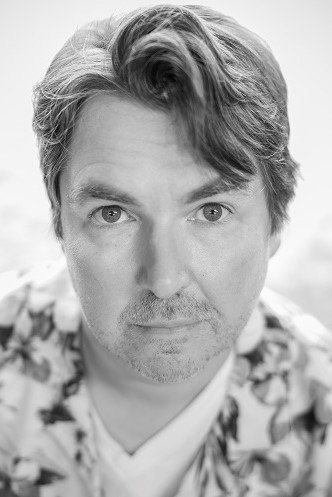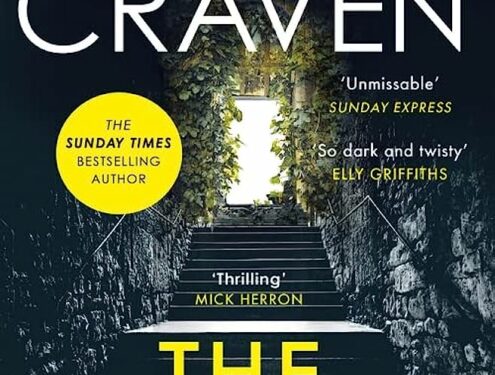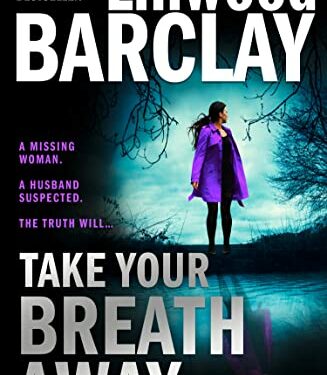CWA Ian Fleming Steel Dagger 2023 – Interview with John Brownlow
As we head towards the announcement of the winner of the 2023 CWA Ian Fleming Steel Dagger, we’ve been talking to some of the shortlisted authors and find out more about their thrilling novels. Next up we have John Brownlow and Seventeen.


How does it feel to be on the shortlist for the CWA Ian Fleming Steel Dagger?
It’s a great and unexpected honour! Seventeen was my first novel and I wasn’t even sure it would find a publisher, never mind end up with a nomination. It’s humbling to end up in such august company.
How would you summarise Seventeen and what inspired you to tell this story?
Seventeen is the story of an expert hitman, known only as Seventeen because he’s the seventeenth in a dynasty that goes back to the Romanovs and the beginning of the twentieth century. There were sixteen before him, each the best of their era, but to be the best you have to beat the best, and the easiest way to the title is simply to kill your predecessor. In the novel, One through Fifteen are all dead and Seventeen is given the job of killing his predecessor, Sixteen, who is the one person on earth who is unequivocally capable of returning the favour. A violent game of chess evolves between the two men, but the mission is very much not what it seems, and turns out to have global stakes, and a big twist of an ending.
It was inspired by having collected a century’s worth of spy stories as a screenwriter and wanting to find a way to string them all together in a coherent package (for example, using other holders of the title to tell a story in 1930s Germany, or revolutionary-era Cuba. I also wanted to upend some of the macho stereotypes of the hitman/espionage novel which I’d grown tired of reading. The mano-a-mano aspect was also inspired by one of my favourite novels (see below).
What is your writing process?
I outline very heavily so every day when I sit down to write I know what I’m supposed to be writing. This way I reduce the number of problems I have to solve on any day and can concentrate on just telling the story. Once I have an outline (which can take months or even years to perfect, while I’m working on other stuff) I write as quickly as I possibly can. I aim for a minimum of 500 words per day but the average is more like 2000, and sometimes as many as 5000. I leave all the editing until after I’ve finished, and make notes to myself in the draft if there are things I’m not happy with or will need to change. If I get stuck it’s almost always because I haven’t done enough research. Often it’s as simple as looking at Google Maps for the location I’m writing about to give me an idea. My other secret weapon is thinking about what I’m going to write the next day as I go to sleep, which usually gets me off to a good start in the morning.
What advice would you give to aspiring thriller writers?
Very basic stuff. Trust your story, and just tell it as straightforwardly as you can. Keep the reader asking ‘what happens next?’. Put your protagonist in seemingly inescapable situations and then think of a way to get them out. Use ‘beginning, middle, end’ as a template for every element of your story. If a scene doesn’t change anything significant, delete it. Do your research. Make sure you know what the elements of the thriller genre are and deliver them cleanly. Don’t be afraid to be commercial. Keep your descriptions short. Make sure secondary characters have their own motivations and goals and aren’t just there as props. And so on!
Also: don’t worry about the quality of the writing in the first draft. Give yourself permission to write complete crap and fix it later. The only two words that matter in the first draft are ‘The’ and ‘End’.
What is your favourite thriller and why?
I am allergic to putting books, films, music etc into lists, and I read far more non-fiction than fiction (probably 20:1 or more) but some of the thrillers that have been important for me are:
The Cooler by George Markstein. I love Markstein’s books but this is generally top of the pile for a re-read. It was a partial inspiration for the TV Series The Prisoner which Markstein worked on. It’s about a remote installation where spies who are suspected of being unreliable are sent to train for missions they will never be sent on, to keep them occupied and fool them into thinking they’re still trusted. I love the looking-glass world, and the edge of paranoia that seeps into it. A good spy thriller needs to turn in on itself in some way, and this does it splendidly.
Rogue Male by Geoffrey Household. Made into a TV series in the ‘70s starring Peter O’Toole, this is the story of a big game hunter in 1939 who decides to assassinate Hitler. The hit goes wrong and instead he finds himself pursued back to England by a German big game hunter, and abandoned by his own side. It’s SUCH a simple premise but it’s perfectly executed. It was a big inspiration for Seventeen… the idea of two perfectly matched opponents who fight themselves to a standstill. I won’t go into details because of spoilers but the big central confrontation in Seventeen is a kind of homage to the final battle here.
The High Window by Raymond Chandler. Kind of an obvious pick, but really I could have chosen anything by Chandler. I think I’m drawn to Marlowe (and the hero in Rogue Male) because unlike most thriller protagonists they’re romantics at heart. Marlowe pretends to be hard-boiled but he really isn’t. I think readers respond to these kinds of heroes (and heroines) because at heart they believe in the perfectibility of the world, as opposed to cynically believing that everything is corrupt. I’m also entertained by the fact that in Chandler (as in Hitchcock a lot of the time) the plot is really quite secondary and doesn’t strive too hard to make sense. We don’t really care because although we come for the plot we stay for the characters, and Chandler delivers in spades.

